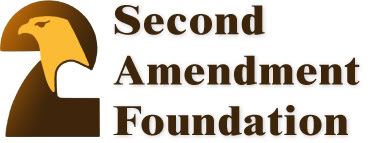In working my way back to the earliest ancestors of my Grandfather Charles Frederick Flint I was somewhat surprised to find that Bathsheba/Bethsua Folger Pope (whose sister Abiah was Benjamin Franklin's mother) was one of the women "afflicted" and thus a witness at the Salem Witch Trials (hereafter simply referred to as "the trials"). Quite obviously, there were other members of the family, i.e. ancestors, present in the colony at that time. Sure enough, others were also involved.
The first of those I came to was Captain Thomas Flint, my 8x great-grandfather, he was born to Thomas Flint and Ann (maiden name unknown) in 1645 and died in Salem (now Danvers), Massachusetts on 24 May 1721. He married first Hannah Moulton (b. 22 May 1646 -d. 20 Mar 1673) and second Mary Dounton (b. 1655-d. 1721).
Thomas and Hannah married on 21 May 1666 (although the date is given also as 22 May 1666 and there may be confusion somehow with their wedding date and her birthdate so both must be suspect). Their children known to me at this time are Abigail (b. 1668-d. 1758) and George (b. 1672-d. 1749). Hannah died a little less than a year after George was born. Widowed with at least two children it was Thomas' responsibility to find another wife and mother for those children.
It seems that Thomas and Mary declared their intention to marry in Sep 1674 and actually married 15 Nov 1674 in Salem. I should note that Captain Thomas Flint was the son of the Honorable Thomas Flint and that some people have apparently confused the two and incorrectly attributed children to one or the other or both. At this time I am fairly certain that these children are correct, Ebenezer (b. 1683-d. 1767 and my 7x great-grandfather), William (b. 1685-d. 1736), Elizabeth (b. 1687-d. 1687), Samuel (b. 1693-d. 1767), Jonathan (b. -d. )and Lydia (b. 1695-d. ?). There are children born, likely in 18-24 month intervals, from 1675-1683 but I haven't winkled them out yet, at least not to MY satisfaction and I intend to correct them here as I go.
Thomas Flint's birth year is estimated as no record of his birth has been found. He is mentioned as the elder son in his father's will. He was probably born a couple of years before his sister Elizabeth.
Thomas Flint was known as a Captain. He was a farmer and carpenter and lived on the homestead at Salem Village. A "mechanic" (engineer and builder buildings within the cities of the day), and appears to have possessed considerable skill, from the fact that he was selected by the inhabitants of Salem Village to build the first meeting-house in that place. It seems that he was much respected by friends and neighbors in the village and to have been influential. He attempted to establish the village church and was deeply interested in the movement and was prominent in the endeavors to bring the matter of building a new church to a successful issue. He, with others, prepared a petition to the church in Salem, enjoining, among other reasons why their requests should be granted, that if they remained any longer without the privileges of religion, "they would become worse than the Heathens around them".
He was a large land-holder, owning real estate in the counties of Essex and Middlesex, a large portion of which was in the latter county, in the town of Reading Mass. These purchases were made at different periods, from 1664 to 1702, and amounted in the aggregate to more than nine hundred acres of land. One of these lots, in Reading, purchased 29 Dec 1701, of Ephriam Savage, of Boston, for a consideration of 60 pounds, is described as being upland and containing one hundred acres, and called "Saddler's Neck" and was bounded on the east by Adam Hart, on the north by Ipswich River and the meadows, south by Bear Meadow, and west by common land. From these lands he gave farms, by deed or gift, to three of his sons: Ebenezer, William, and Jonathan. Between 1664 and 1692 he bought the house owned by father-in-law William Dounton (jailor during the witch trials) for 100 pounds. After neighbor Giles Cory's death, Captain Thomas Flint bought his property to add to his estate. This house was located in the triangle west of the West Peabody Station and north of Pine St. The 1692 map shows the Giles Cory property was located across the the road from the Thomas Flint property. City planner Judy Otto researched the history of Crystal Lake, She does not think the Pope sawmill was a haunted mill. She wrote, at the head of Crystal Lake at Goodale Street, on the west side, lived Captain Thomas Flint. The house was contained on the farm of Giles Corey, according to boundaries shown on the map. Giles himself lived further away on the other side of the property, on what is now Johnson Street, near Oak Grove cemetery. These two buildings, the Flint and Pope buildings, were the only dwellings shown in the vicinity of Crystal Lake. Flint's mill was built after the Pope mill by Thomas Flint on the opposite side of Lowell Street and close to the pond. The mill existed until the 20th century and was the mill some believe to be the haunted mill pictured in the black-and-white post card that was printed by Peabody Historical Society in 1905. Interestingly, Joseph Pope Jr.'s sister Gertrude married Ebenezer (or Eben) Flint, a son of Thomas Flint."

Thomas served during King Phillips War and was wounded in the great swamp fight 19 Dec 1675. The attack took place at "hideous swamp" near present South Kingston, Rhode Island. There, the army of 1,000 men met 3,000 Indians who were well entrenched behind a triple palisade of block houses. Murderous fire met the English, but they pressed on and about two-thirds of the enemy were either killed or burned to death. The English finally retired with their wounded and marched back to the Bay, having marched 36 miles and fought savagely for three hours in that single day. It was a tough battle, not excepting Bunker Hill, ever fought on New England soil, says Samuel Elliot Morrison, historian and author of "The Oxford History of the American People". Eighty were killed, many wounded (including Thomas Flint) and eight out of fourteen company commanders were killed including Captain Gardner, Thomas's commander. "Due to a break down in supply," Morrison say, "the survivors spent a regular Valley Forge winter at Wickford, Rhode Island". The Great Swamp Fight broke the power of the Naraganssetts at the Aporadicraids until the next spring.
In February 1692 we see the beginning of the Salem Witch hysteria. This is where Bathsheba Folger Pope was purportedly a victim of and an accuser of Rebecca Nurse as a witch. Thomas, living in Salem, was also involved. Thomas Flint served as juror in the examination of George Jacobs Jr and George Burroughs, both accused of witchcraft in the Salem Witch Trials. He also served as juror looking into the suspicious death of Daniel Wilkins: Note (physical examinations of George Burroughs and George Jacobs, Jr) from trial: "Wee whoes names are under written having received an order from the wife for to search the bodyes of George Burroughs and George Jackobs., wee find nothing upon the body of the above sayd Burroughs but w'tis naturall: but upon the body of George Jacobs wee find three tetts (warts) w'chacording to the best of our Judgements wee think is not naturall for wee run a pinn through two of them and he was not sinceible of it: one of them being within his mouth and the other on the inside of his right shoulder blade and the third upon his right hipp. Ed. Weld , sworne, Will Gill, sworne, Tom Flint, Jurat, Tom West, Sworne.
Further information is provided in this excerpt some from the Cory Flint Family history:
In July of 1678, Giles Cory was the subject of a court action per "The History of Salem" vol. III, pages 118 and 119:
"A small house belonging to John Procter, which stood on the northerly side of Lowell Street, about one hundred and fifty rods easterly from the Georgetown branch of the Boston and Maine Railroad, was partially burned in July 1678. The roof and that part of the walls above two feet upward from the upper floor was burned away. This occurred about two hours before day, and but for the timely appearance and strenuous efforts of John Phelps and Thomas Fuller, who passing, it would have been wholly destroyed. Procter suspected that Giles Corey set the fire. A warrant was issued on the 24th for his appearance in court, as he had done so many ill things to his neighbors...threatened and suggested fires, etc. He proved that he was at home and abed all the night of the fire, and was discharged. On 37 Aug 1684, his second wife Mary, died at the age of 63 (as is marked on her grave stone). He married for a third time 27 April 1690 to Martha Penoyer. Martha was admitted to the church of Salem Village, now Danvers, where Giles lived. In "Mayflower Families", vol. III, page 134,it mentions that Martha Penoyer married Henry Rich at Stanford in Dec 1680 and later married Giles Cory of Salem. Between 1664 and 1692 Giles Cory witnessed the recording of a deed when a neighbor, Capt. Thomas Flint, bought the house owned by William Dounton for 100 pounds. William Dounton was Thomas Flint's father-in-law. Both Giles and Martha were victims of the Salem witchcraft trials. Martha was convicted and hanged for witchcraft 22 Sept 1692. Giles Cory was pressed to death for refusing to plead on 19 Sept 1692. Giles Cory's will stated that he gave to his sons-in-laws all his property, real and personal, including stock, lands and meadow, house, bedding, money, and all movable estate. After Giles Cory's death, Capt. Thomas Flint bought his property to add to his estate. This house was located "in the triangle west of the Peabody Station and north of Pine St." The 1692 Salem map shows the Giles Cory property was located across the road from the Thomas Flint property.
CAPT THOMAS FLINT'S WILL
In the name of God Amen this 11th day of February 1721 I Thomas Flint Son of Salem Village in the county of Essex husbandman being often sick and weak of body but of sound mind and memory blessed be God for it and calling to mind the mortality of the body and knowing that it is appointed for all men once to die do make this my last will and testament And first of all and principally I give and recommend my soul into the hands of God through Jesus Christ my Redeemer with whom I hope to live ever And for my body I commit to the earth to be buried in a Christian and decent manner at the discretion of my executor hereafter named nothing doubting but at the general resurrection I shall receive the same again by the mighty power of God And as touching such worldly estate wherewith it hath pleased God to bless me in this life I dispose of it in manner and form as follows
Item I give and bequeath to my son George Flint to him and to his heirs of his body lawfully begotten that land on which his house standeth being bounded as followeth easterly with the land of John Moulton southerly with the land of James Gould and southwesterly with Humphrey's farm and northwesterly with the land of Capt Gardner And I give to my son George the four pounds of money that Timothy Perkins owes me that by virtue of his bond given to me Further my will is that if my son George die without lawful issue then his land shall be equally given by me by virtue of this will to my two sons namely Thomas and Samuel equally between them both according to quantity and quality
Item I give and bequeath to my two sons Thomas and Samuel Flint to them their heirs and assigns forever all my homestead of land whereon my house and barn standeth Thomas to have the house and barn where he now dwells and Samuel to have this where I now dwell and all those parcels of land hereafter mentioned that is to say all my land at Bald hill and all my meadow ground adjoining to Bald hill and all my pasture behind Bald hill that I bought of H Conant And all my land on the north side of Ipswich river whereon my saw mill stands together with my saw mill which said land adjoins to John Phelps land also that piece of land I bought of my father in law William Doughton lying in the town of Salem also that piece of meadow I bought of Lieut Thomas Fuller lying in the township of Reading and containing by estimation about seven or eight acres as per bill of sale to me may appear and all these lands so given as abovesaid together with my homestead farm land and meadow shall be equally divided between my two sons as abovesaid according to quantity and quality
Also I give to my son Thomas to him and his heirs and assigns forever ten acres of river meadow lying on the north side of Ipswich River which I bought of Capt Savage Thomas shall have the upper end of it
Also I give to my son Thomas one part in Brook meadow and Samuel two when Jonathan has taken his three acres
Also I give and bequeath to my son Samuel five acres of the river meadow land adjoining to his brother Thomas's meadow and the rest of the river meadow I give to my two sons named William and Jonathan
Item I give and bequeath to my son Ebenezer Flint to him his heirs and assigns forever
Item I give and bequeath to my son William Flint to him his heirs and assigns forever
Item I give and bequeath to my son Jonathan Flint to him his heirs and assigns forever all of my share of land and meadow that adjoins to their own land that I gave upon their deeds of gift the land to be equally divided between them three according to quantity and quality only the meadow Ebenezer shall have two thirds and William and Jonathan one third between them
Item whereas I have abovesaid given my son Ebenezer two thirds of said meadow yet my will is that my son Jonathan and my son Ebenezer shall have the whole meadow between them and my son William shall have no part in said Bare meadow so called
Item I give and bequeath to my sons Ebenezer William and Jonathan their heirs and assigns four poles of land lying in Salem near John Cook's adjoining to Thomas Sheef
Item I give to my three sons Ebenezer William and Jonathan my meadow called by the name of Fools meadow being in the town of Reading equally to be divided between them three
Item I give to my son Samuel my meadow called by the name of Wilson's meadow lying within the township of Lynn
Item I give and bequeath to my daughter Abigail Holton forty pounds in money to be paid to her in money by her brother Thomas Nichols by virtue of a bond given to me by him for said money and to be paid to her according to said bond
tem I give to my daughter Elizabeth Nichols forty pounds in money and land which she hath already had besides what I gave her upon her marriage so that there now remains but five shillings due to her to make up her portion
Item I give to my daughter Anne forty pounds in land by deed of gift which she already hath besides what I gave her upon her marriage so that there remains but five shillings to make up her portion
Item I give to my daughter Lydia forty three acres of land lying in the township of Reading in the county of Middlesex being part of that four hundred acres that the town of Reading gave to the minister Mr Rev Haven being bounded as followeth wholly with the land given to Ebenezer Nichols and westerly with the land of said Ebenezer Nichols and northerly with my own land and easterly with the land of George Flint which land so given to make up her portion besides what I gave her upon her marriage
Item I give to my grandson Jonathan Howyard forty pounds in money to be paid to him by his uncle Thomas Nichols of Reading by virtue of a bond given to me by him for said money but if it shall please God to take him away by death before he shall come to the age of twenty one years then my will is my daughters then surviving shall have the money equally between them
Item I give to my granddaughter Mary Flint thirty pounds to be paid to her by my executors when she shall be twenty one years of age and if married before then to be paid by her I mean my son Thomas Flint's daughter
Item notwithstanding I have given to my son Samuel this my dwelling house yet my will is that my wife shall have west end of it for her to dwell in even from the lower room to the garret whilst she remains my widow and what of my garden she may see cause to use
Item my will further is that my two sons Thomas and Samuel shall suitable provide for their mother things convenient for her comfortable support while she remains my widow they shall provide and bring in those things in due season hereafter named and that yearly They shall provide suitable firewood for her and bring it to her house They shall provide and bring her in ten bushels of Indian corn and two bushels of English meal and four bushels of ground malt 120 Ibs good pork four barrels cider and apples what she pleaseth They shall keep her two cows both summer and winter My will is that my son Samuel shall provide two thirds of the provisions above named and my son Thomas one third And my son Thomas shall provide and give to his mother six pounds sheep's wool yearly and my son Samuel shall provide for his mother six pounds of good flax well combed fit to spin Also my three sons named Ebenezer William and Jonathan shall pay to their mother ten shillings apiece in money yearly and all to be done for her in due season as abovesaid while she remains my widow
Item I give to my son Samuel my negro man named Cuttee
Item I give and bequeath to my well beloved wife all my movable estate within doors to be at her disposal after my decease and if she dispose not of them while she lives then my daughters surviving shall come and divide them equally among themselves
Item I give and bequeath to my two sons Thomas and Samuel whom I make executors of this my last will and testament all my movable estate without doors equally to be divided between them They shall equally pay my debts and equally divide my credits And now to conclude my will I nominate and appoint my two sons Thomas and Samuel Flint to be my sole Executors of this my last will and testament In testimony whereof I have hereunto set my hand and seal this 13 day of Feb y 1721
Signed sealed and decl d in presence of us.
EDWARD PUTNAM THOMAS FLINT seal
WILLIAM CURTISS
ANNA CURTISS
MARY DELUDE
Links:
-
Genealogical Register of the Descendants of Thomas Flint of Salem























